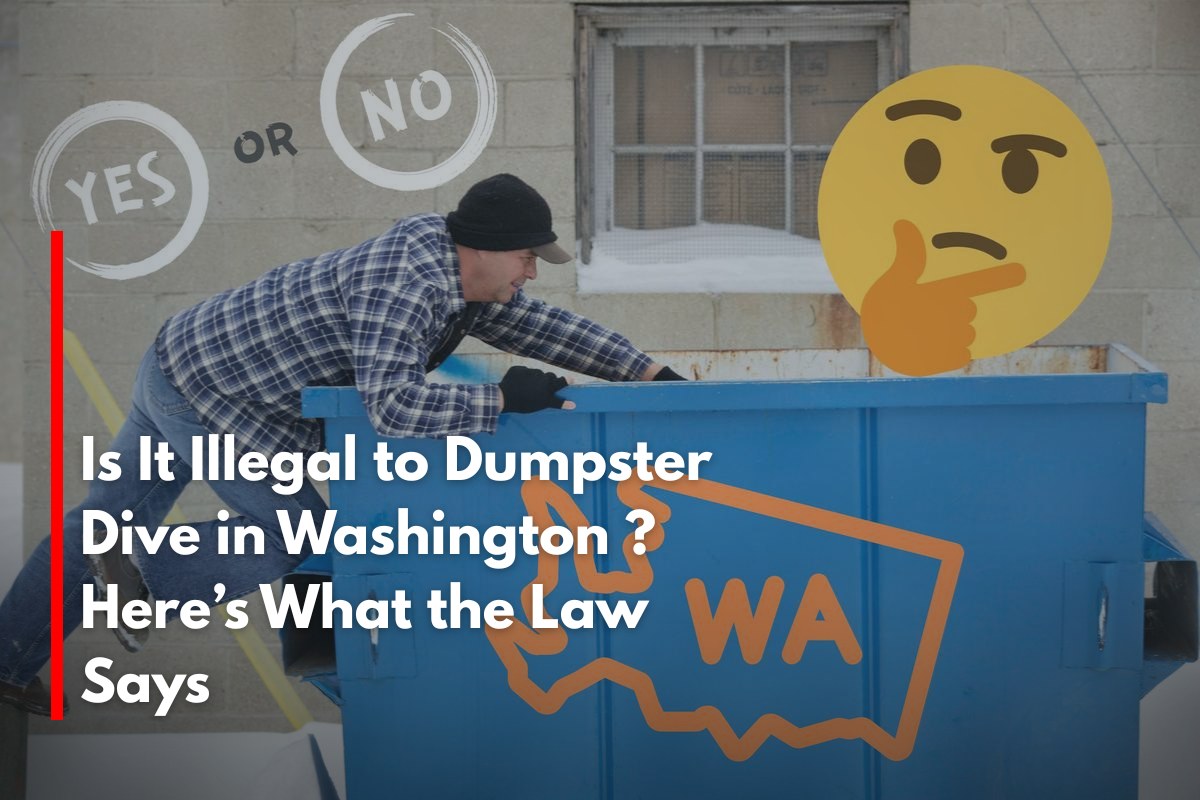Dumpster diving—searching through trash for usable items—is a practice that raises both legal and practical questions in Washington state. Here’s what you need to know about the legality, risks, and best practices as of 2025.
Is Dumpster Diving Legal in Washington?
Dumpster diving is generally legal in Washington state, but several important caveats apply:
No Statewide Ban: There are no specific state laws prohibiting dumpster diving. In fact, Washington is considered one of the more permissive states, with cities like Seattle encouraging sustainable disposal and reuse.
Supreme Court Precedent: The U.S. Supreme Court case California v. Greenwood (1988) established that trash left for collection is considered abandoned and can be searched by anyone, including law enforcement. This supports the legality of dumpster diving on public property.
Key Legal Risks and Restrictions
While dumpster diving is not outright illegal, there are several legal risks to consider:
1. Trespassing
Private Property: If a dumpster is located on private property (e.g., behind a store, inside a fenced area, or marked with “No Trespassing” signs), entering to access it may constitute trespassing, which is illegal.
Public Property: Dumpsters placed on public streets or alleys are generally fair game, but always check for local ordinances.
2. Theft
Taking Clearly Marked Property: Removing items that are clearly marked as belonging to someone else or are behind locks can be considered theft.
Locked or Signed Dumpsters: If a dumpster is locked or has signage prohibiting access, taking items from it may result in criminal charges.
3. Local Ordinances
City and County Rules: Some cities and counties in Washington have their own ordinances that restrict or prohibit scavenging in certain dumpsters, especially in city landfills or municipal waste bins. Always check local regulations before diving.
4. Disorderly Conduct and Littering
Creating a Mess: Leaving trash outside the dumpster or causing a disturbance can lead to fines for littering or disorderly conduct.
What About Businesses and Residences?
Businesses: Many businesses consider dumpsters on their property as private. Always seek permission if the dumpster is not clearly accessible from a public area.
Residences: Trash left at the curb for collection is generally considered public, but entering someone’s yard or driveway is trespassing.
Best Practices for Dumpster Diving in Washington
Stick to public areas: Only access dumpsters that are clearly on public property and not behind fences or gates.
Respect signs and locks: Never tamper with locks or ignore posted prohibitions.
Don’t make a mess: Clean up after yourself to avoid accusations of littering or disorderly conduct.
Check local laws: Some municipalities have stricter rules—consult city or county websites for specific ordinances.
Ask for permission: When in doubt, ask the property owner or manager for consent.
Quick Reference Table
| Scenario | Legal Status in Washington |
|---|---|
| Dumpster on public property | Legal, unless local ordinance |
| Dumpster on private property | Illegal without permission |
| Locked/signed “No Trespassing” bin | Illegal to access |
| Creating a mess/littering | Illegal, subject to fines |
| Violating local ordinances | Illegal, check city/county law |
Dumpster diving is not illegal statewide in Washington, but trespassing, theft, and local ordinances can make it unlawful in specific situations. Always respect private property, obey signage, and check local regulations to avoid legal trouble
Sources
[1] https://www.theenvironmentalblog.org/2025/04/is-dumpster-diving-legal/
[2] https://katsfm.com/washington-dumpster-diving-tips/
[3] https://www.findlaw.com/injury/torts-and-personal-injuries/dumpster-diving.html
[4] https://worldpopulationreview.com/state-rankings/dumpster-diving-legal-states
[5] http://revista.unisierra.edu.mx/index.php/2023/11/04/washington-state-dumpster-diving-laws-what-you-need-to-know/











